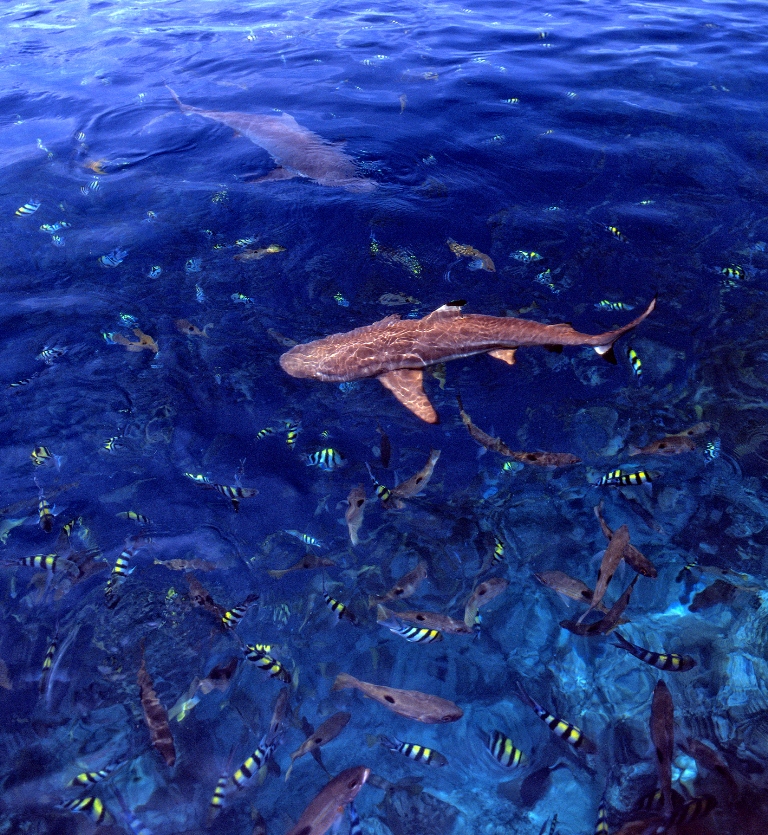Pacific Commitments
The Ocean Conference Registry of Voluntary Commitments is an online Registry of initiatives voluntarily undertaken by all stakeholders – individually or in partnership, to help achieve SDG14. This is now open and will close on 9 June for which the Registry will be produced at the end of the Conference and will be included in the conference report. To help you as you plan for The Ocean Conference SPREP has developed the below information sheet, taken from different parts of the UN Oceans Conference website. We have pulled together the key information to help you.
Please feel free to read through the below as you prepare for registration a voluntary commitment from the Pacific.
We hope you find this helpful.
 Photo: Stuart Chape
Photo: Stuart Chape
Points to Note:
A list of voluntary commitments for the implementation of Goal 14 is an outcome of the UN Oceans Conference. They must:
- Advance implementation of SDG 14 and associated targets, reflecting inter-linkages between SDG 14 and other Sustainable Development Goals;
- Respect principles of the United Nations and the legal framework in force for the oceans;
- Build on existing successful efforts (scaling it up, new phase, etc.) or introduce a new one;
- Include means of implementation - such as finance or capacity building - as an element to help ensure longevity and sustainability of the initiative;
- Provide access to additional information on the commitments (e.g. website, contacts);
- Follow SMART Criteria - a commitment that is Specific, Measurable, Achievable, Resource based, with Time-based deliverables.
The form to register your commitment requires detailed information. If you are interested in registering a voluntary commitment, please ensure you have the following details ready:
- Title of commitment
- A list of all the organisations and entities including us that are involved. For each partner, you must include in brackets, the entity type for which a range has been provided on the form.
- Beneficiary countries (this is optional)
- Other beneficiaries
- Up to 500 words that describe the commitment (objectives, implementation methodologies, follow- up mechanisms, governance etc)
- Ocean basins targeted by the commitment – you can have more than one and there is both a South and North Pacific option.
- List, at minimum one with a maximum of 4, tangible time-based deliverables (you must enter a month and year also)
- The type of resources mobilised for this – you can choose from financing in USD, in-kind contribution, other to be specified and staff/technical expertise.
- You must also give a description of the resource.
- A start and end date for the voluntary contribution
- Website for further information
- Select which of the 16 remaining SDG’s this is commitment is linked to
- An image to accompany it
You must select which of the below ADG14 targets are covered by the commitment:
- Target14.1 by 2025, prevent and significantly reduce marine pollution of all kinds, particularly from land-based activities, including marine debris and nutrient pollution
- Target14.2 by 2020, sustainably manage, and protect marine and coastal ecosystems to avoid significant adverse impacts, including by strengthening their resilience and take action for their restoration, to achieve healthy and productive oceans
- Target14.3 minimise and address the impacts of ocean acidification, including through enhanced scientific cooperation at all levels
- Target14.4 by 2020, effectively regulate harvesting, and end overfishing, illegal, unreported and unregulated (IUU) fishing and destructive fishing practices and implement science-based management plans, to restore fish stocks in the shortest time feasible at least to levels that can produce maximum sustainable yield as determined by their biological characteristics
- Target14.5 by 2020, conserve at least 10 per cent of coastal and marine areas, consistent with national and international law and based on best available scientific information
- Target14.6 by 2020, prohibit certain forms of fisheries subsidies which contribute to overcapacity and overfishing, and eliminate subsidies that contribute to IUU fishing, and refrain from introducing new such subsidies, recognising that appropriate and effective special and differential treatment for developing and least-developed countries should be an integral part of the WTO fisheries subsidies negotiation
- Target14.7 by 2030 increase the economic benefits to SIDS and LDCs from the sustainable use of marine resources, including through sustainable management of fisheries, aquaculture and tourism
- Target14.a increase scientific knowledge, develop research capacities and transfer marine technology taking into account the Intergovernmental Oceanographic Commission Criteria and Guidelines on the Transfer of Marine Technology, in order to improve ocean health and to enhance the contribution of marine biodiversity to the development of developing countries, in particular, SIDS and LDCs
- Target14.b provide access of small-scale artisanal fishers to marine resources and markets
- Target14.c Enhance the conservation and sustainable use of oceans and their resources by implementing international law as reflected in UNCLOS, which provides the legal framework for the conservation and sustainable use of oceans and their resources, as recalled in paragraph 158 of The Future We Want.
For more information: https://oceanconference.un.org/commitments/
Registration form: https://oceanconference.un.org/commitments/register/
Press Release calling for commitments: https://sustainabledevelopment.un.org/content/documents/12840Ocean_Conference_commitment_release_1